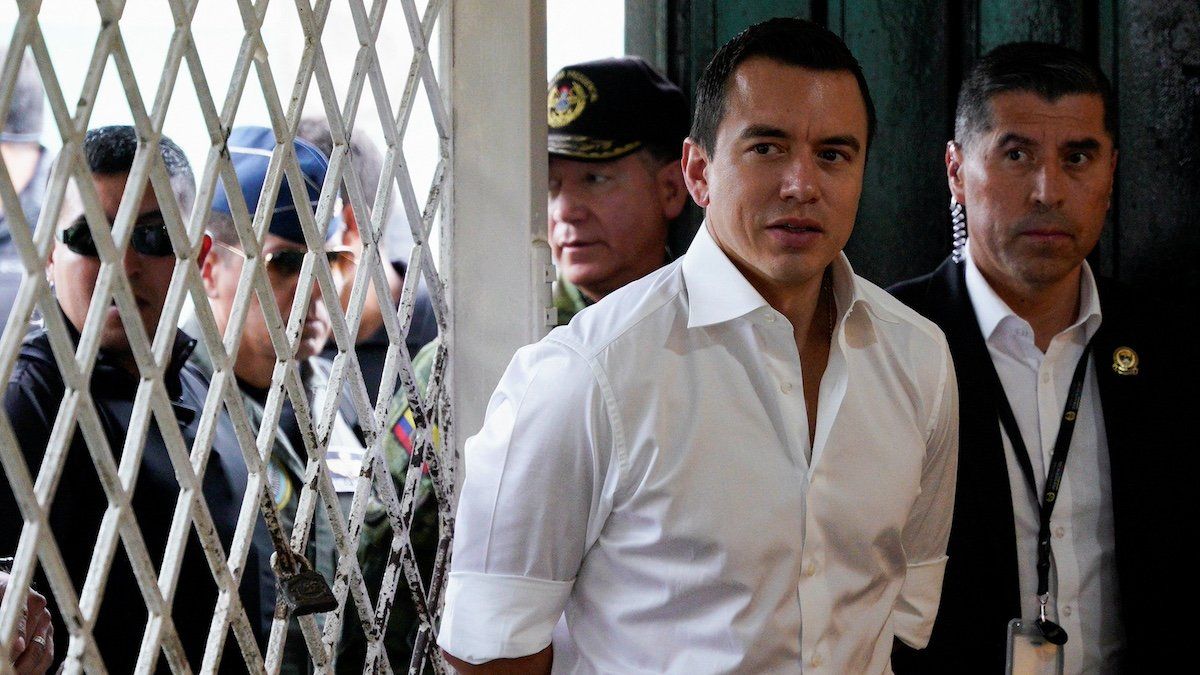Ecuadorians showed overwhelming support for a government crackdown on drug-related violence in referendums this weekend in what could become a regional trend. Quito won support for joint police-military patrols, extradition of wanted criminals, tighter gun control, and tougher punishments for murder and drug trafficking, among other measures.
Cocaine boom: Ecuador had long maintained a reputation for tranquility despite being sandwiched between the major cocaine production hubs of Colombia and Peru. Coke is in the midst of a major resurgence, according to the UN Office on Drugs and Crime, with seven straight years of growing use.
Consequently, traffickers are trying to ship more blow than ever to the US, and increasingly doing so through Ecuador’s conveniently located ports. With the drugs come weapons, money, and violence, tearing at the social fabric. In August of last year, presidential candidate Fernando Villavicencio was assassinated after receiving death threats from gang leader Jose Adolfo Macias, who later escaped prison.
Iron fist: Ecuador is far from alone in experiencing a surge in drug violence, and leaders in Latin America are looking at Salvadoran President Nayib Bukele’s “mano dura” (iron fist) crackdown as an example.
“Ecuadorian President Daniel Noboa took from the Bukele playbook in realizing that citizens are open to more draconian type measures,” says Eurasia Group associate Yael Sternberg, though she emphasized that the actual policies and problems are different.
If it pays off for Noboa like it has for Bukele, Sternberg says Chile is the country to watch next, with a growing crime issue and elections next year.
